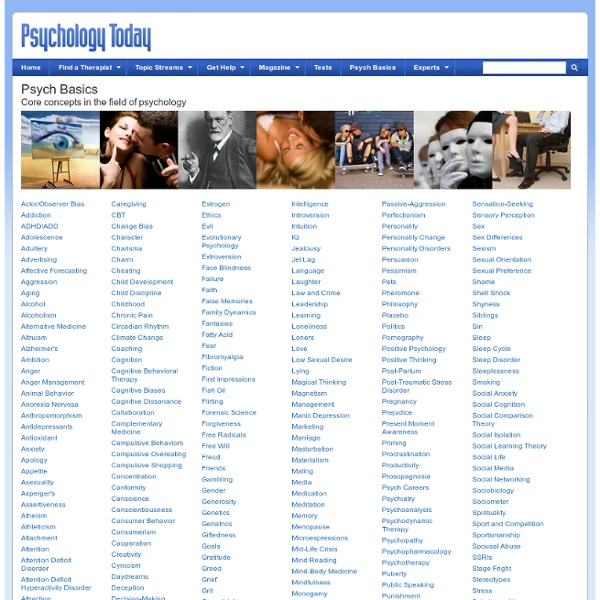



47 Mind-Blowing Psychological Facts You Should Know About Yourself I’ve decided to start a series called 100 Things You Should Know about People. As in: 100 things you should know if you are going to design an effective and persuasive website, web application or software application. Or maybe just 100 things that everyone should know about humans! The order that I’ll present these 100 things is going to be pretty random. So the fact that this first one is first doesn’t mean that’s it’s the most important.. just that it came to mind first. Dr. <div class="slide-intro-bottom"><a href=" How to Listen When Someone's Upset When our loved-one erupts in anger and frustration, the last thing most of us think to do is to pour fuel on the fire by telling them they feel angry and frustrated. Yet when done , providing someone emotional validation can have extremely surprising results that strengthen relationship bonds. We've all been in situations in which a loved one is incredibly upset. It is often hard to know the best way to react in such scenarios. Our instinct is to try and calm them down but that is not easy to do and it might even be risky. As a result we are often extremely uncomfortable and at a loss for what to say. The idea of fanning the flames by telling the person in question they have every right to feel irate or livid seems counterintuitive. Emotional validation is something we all seek and crave far more than we realize. However, getting things off our chest by telling others about our feelings is not always satisfying or cathartic. So how does one offer authentic emotional validation? 1. 2.
Reflective Listening (drawn from Communication in Organizations, by Dalmar Fisher) Reflective listening has its roots the fields of counseling and psychotherapy, particularly in Carl Rogers's "client-centered" therapy. This is not to say that people in organizations should become therapists, but rather that this one therapeutic skill can be very useful in many everyday work situations. Reflective listening is used in situations where you are trying to help the speaker deal with something. As you will see, it is very similar to what Tannen would called rapport-talk. There are two major aspects of client-centered listening – the "listener orientation" and the "reflective technique". Listening Orientation In reflective listening, the listener adopts what Rogers called "the therapist's hypothesis". Rogers and others have made the underlying orientation of the listener more specific by noting that it contains four components: empathy, acceptance, congruence, and concreteness. The Technique of Reflection Overreaching.
Carl Gustav Jung Quotes and Quotations, Famous Quotes by Authors A man who has not passed through the inferno of his passions has never overcome them. Every form of addiction is bad, no matter whether the narcotic be alcohol or morphine or idealism. Everything that irritates us about others can lead us to an understanding of ourselves. From the middle of life onward, only he remains vitally alive who is ready to die with life. In all chaos there is a cosmos, in all disorder a secret order. It all depends on how we look at things, and not how they are in themselves. It is a fact that cannot be denied: the wickedness of others becomes our own wickedness because it kindles something evil in our own hearts. It is on the whole probably that we continually dream, but that consciousness makes such a noise that we do not hear it. Knowledge rests not upon truth alone, but upon error also. Man needs difficulties; they are necessary for health. Meaning makes a great many things endurable. Neurosis is always a substitute for legitimate suffering.